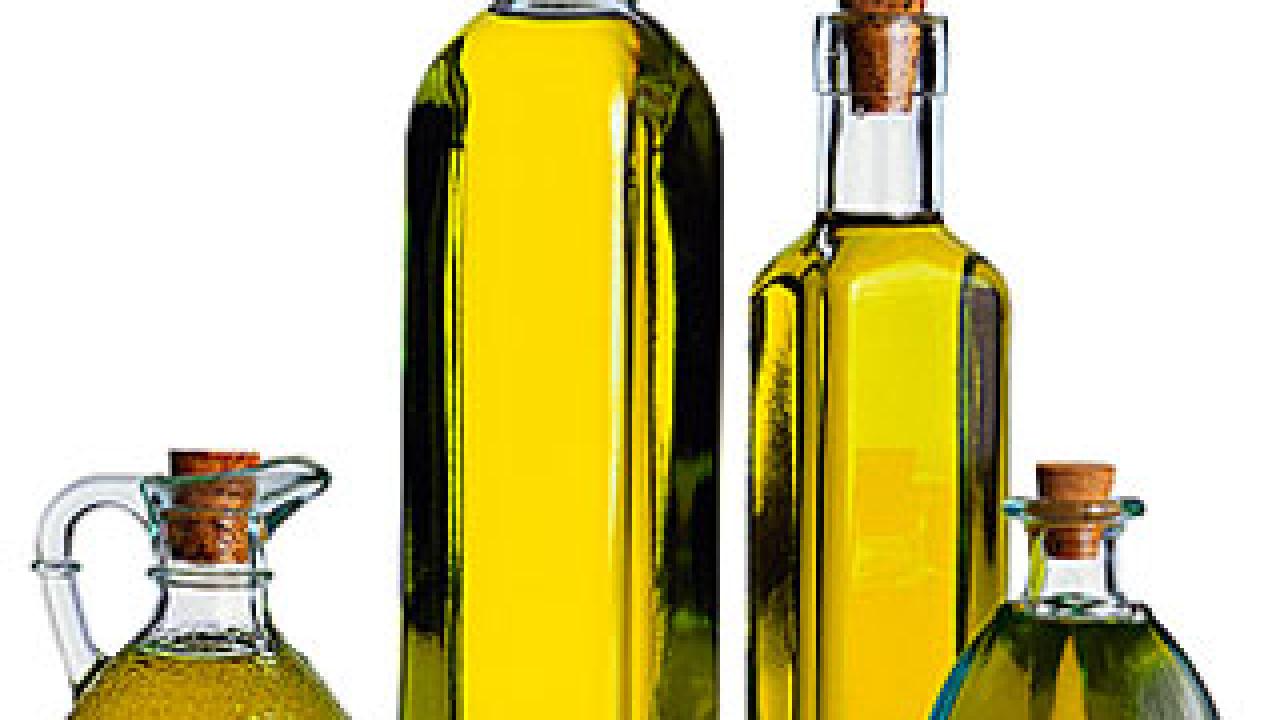Hoping to do for olives and olive oil what it has done for grapes and wine, the University of California, Davis, today launched the first university-based olive research and education center in North America.
Plans for the new UC Davis Olive Center, which is part of the university's Robert Mondavi Institute for Wine and Food Science, were unveiled in San Diego during the international Winter Fancy Food Show, a gathering of 16,000 retailers, restaurateurs and other vendors of specialty foods.
The center has been established with a combined $75,000 in seed funding from the campus's College of Agricultural and Environmental Sciences and the Office of Research. Startup funds totaling $25,000 also have been provided by Corto Olive, the Musco Family Olive Co., Bell-Carter Foods, the California Olive Oil Council and the California Olive Ranch.
"The university had the privilege of helping move California wines into the world's highest rankings," said Dan Flynn, executive director of the new center. "Now we look forward to harnessing UC Davis' research expertise to help vault California olives and olive oil into that same league."
Neal Van Alfen, dean of UC Davis' College of Agricultural and Environmental Sciences said: "This is the beginning of a historic new partnership with one of the state's most promising industries. We are confident that it will lead to advances in olive growing and processing, and a better understanding of the link between olive products and consumer health."
Alan Greene, president of the California Olive Oil Council and a vice president of the California Olive Ranch, said: "The olive center will help all olive producers, large and small, tackle the pressing challenges facing our industry. We anticipate that the center will enhance the economic viability of the California olive industry in an extremely competitive international marketplace."
UC Davis, with its faculty of plant and food scientists plus more than 2,000 olive trees in the campus landscape and research orchards, is uniquely positioned to host the new center. Its olive trees comprise what is thought to be the most extensive collection of olive trees in North America.
In 2005, UC Davis began pressing and processing olive oil from its trees, using the proceeds to help cover the cost of maintaining the trees. In 2007, the campus processed 425 gallons, which translated into 6,500 bottles of olive oil. The campus's three olive-oil blends earned silver and bronze awards at the 2007 Los Angeles International Extra Virgin Olive Oil Competition.
Flynn, who manages UC Davis' olive oil production program, said the new center's initial priorities will include strengthening California's olive oil labeling statutes, conducting research on issues identified by olive-oil and table-olive producers, and identifying better laboratory methods for detecting adulterated olive oil. The center also plans to establish a certified-organic olive orchard and will develop a research taste panel to help improve the quality of olive oils.
Serving as faculty co-directors for the center will be Charles Shoemaker, a professor in the Department of Food Science and Technology, and Vito Polito, a professor in the Department of Plant Sciences.
More than 30 individuals from UC Davis and the UC Cooperative Extension have expressed interest in participating in the center. They represent a variety of disciplines including plant sciences, food science, agricultural economics and agricultural engineering.
The center's program will be devoted to teaching, research and educational activities. As planned, the teaching component will eventually include a general-education class on olive oil; student internships; and short courses on olive growing, and olive-oil processing and sensory evaluation.
An olive-oil processing plant will be placed in the new Robert Mondavi Institute for Wine and Food Science complex, which is under construction and scheduled for completion in June 2008. The new Olive Center will include state-of-the-art milling equipment. The Olive Center plans to begin processing olive oil with the equipment in fall 2008.
The olive-oil processing plant will enable the center to examine the impact of different olive varieties, environmental factors and growing practices on olive-oil quality. Researchers affiliated with the center will also explore potential health benefits of olives and olive oil, pest management strategies and mechanical harvesting improvements.
In the area of public outreach, the center will offer short courses on the production and sensory evaluation of olive oil. It also will develop an informational Web site and library. And, the Robert Mondavi Institute will showcase olive trees in its edible organic garden.
The University of California has a long history in olive-related research, teaching and outreach, stretching back to 1898 when UC Berkeley Professor Eugene Hilgard and pioneering California olive producer Frieda Ehmann worked together to develop a canning process for black ripe olives. That tradition continues today through the efforts of UC Davis researchers and UC Cooperative Extension farm advisors.
Media Resources
Pat Bailey, Research news (emphasis: agricultural and nutritional sciences, and veterinary medicine), 530-219-9640, pjbailey@ucdavis.edu
Dan Flynn, Olive Center, (530) 752-5170, jdflynn@ucdavis.edu
